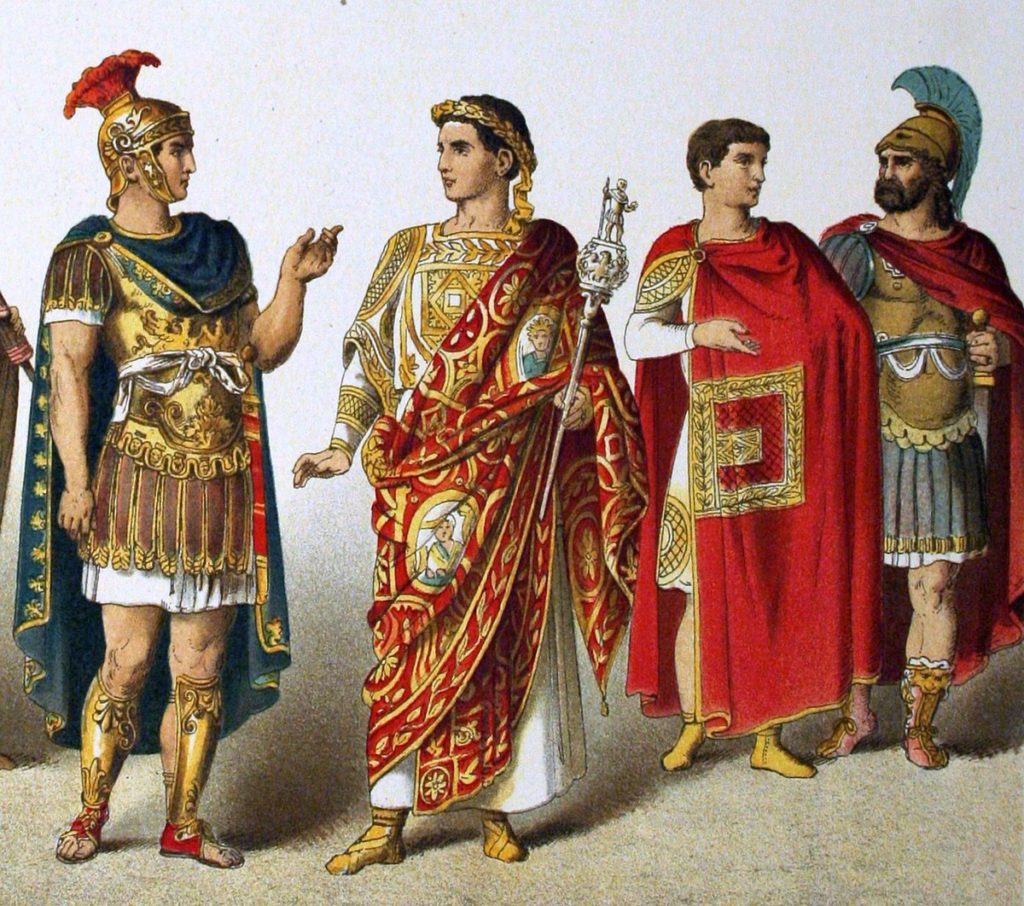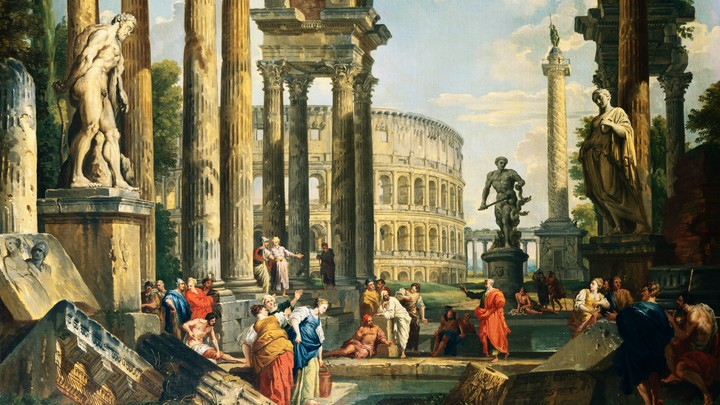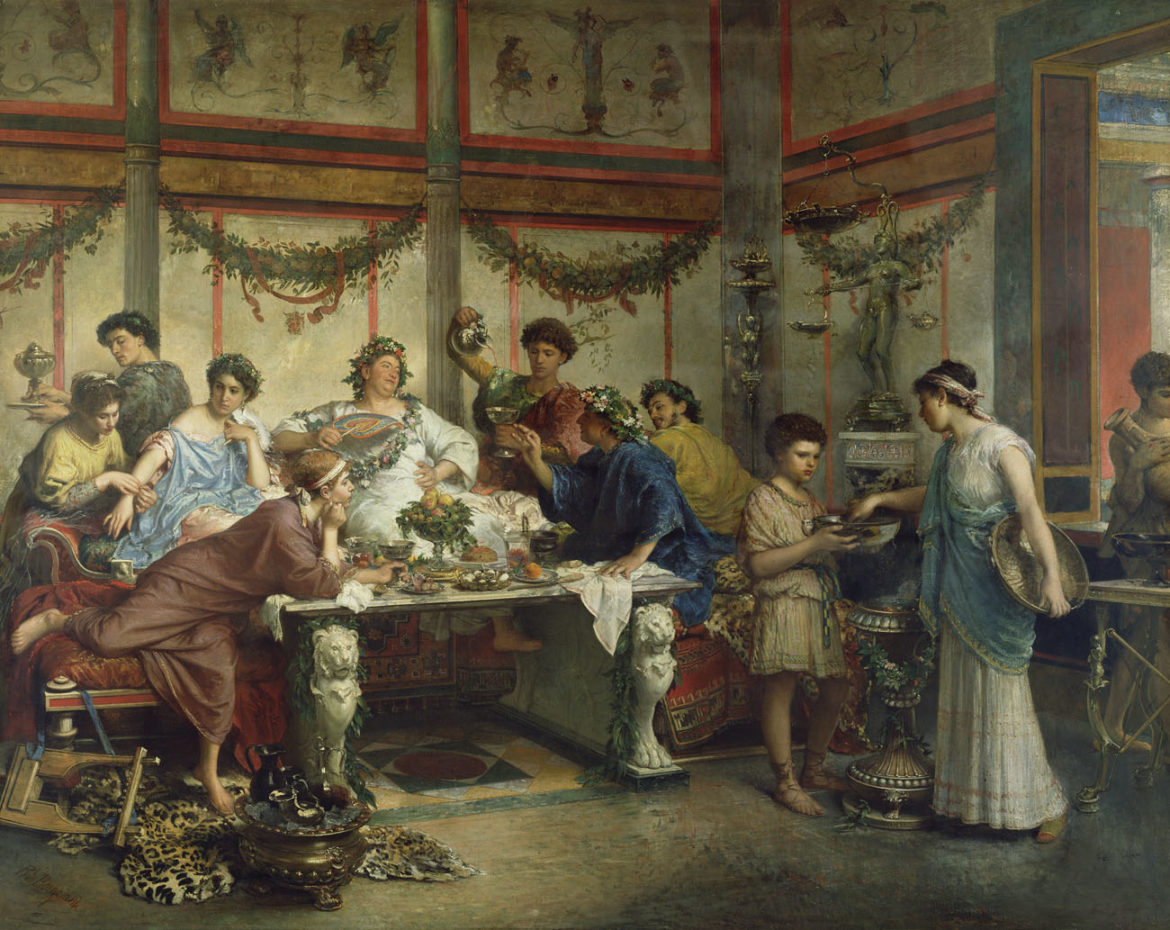Casual vomiting between courses, parrot tongues, and mid-meal naps…Gross
Hopefully, things have changed since the Ancient Romans were in power.
The following written content by Andrea Romano

While Thanksgiving is a day for American indulgence, rest assured that no one, and we mean no one, could indulge like the Romans did.
Feasting was like a sport that only ancient Romans could excel at. They were usually reserved for the wealthiest class, took several hours into the night, and were filled with copious amounts of (sometimes unique or extraordinary) foods as well as bodily functions that modern society would frown upon –– or be genuinely concerned about.
“Eating was the supreme act of civilization and celebration of life,” said Alberto Jori, professor of ancient philosophy at the University of Ferrara in Italy, to CNN.
Let’s start with the food.
While we normally marvel at the Thanksgiving table, filled with turkey, stuffing, yams, casseroles, and cranberry sauce, these things don’t hold a candle to a Roman menu. In addition to comparatively normal offerings like pastas, roasted game meat like venison or boar, seafood like raw oysters or shellfish, and sweet cakes, the tables of ancient Rome also had exotic or strange concoctions like stuffed dormouse (yes, a rodent) and parrot tongues, according to CNN. Wine was also consumed, of course, but it was often spiked with other ingredients — like tar.

To top all the food off was a condiment called garum, a fish sauce made by crushing and fermenting meat and intestines from fish, eel, anchovies, and other animals, in the sun, according to CNN. In all fairness, it was apparently similar to fish sauces in different Asian cuisines.
But a Roman feast isn’t just how much you eat, but how you do it. According to CNN, Romans would often eat by lying on their bellies in order to aid digestion. “The left hand held up their head while the right one picked up the morsels placed on the table, bringing them to the mouth. So they ate with their hands and the food had to be already cut by slaves,” Jori told CNN. Unfortunately, owning slaves was also considered a status symbol in ancient Rome, so anyone who did have the means to throw a feast also had slaves who would clean up after it. Read more from Travel and Leisure.
Follow News Without Politics for more interesting and relevant, important U.S. and world news stories plus health, entertainment, sports, weather, food and more without media bias.
Stay informed daily. unbiased news fair and balanced, ahead of influence





